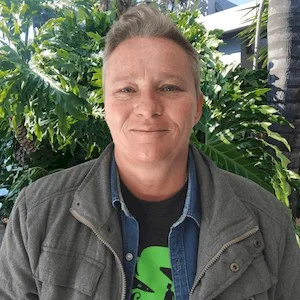If you’re facing substance use disorder issues look at these three areas: the quality of treatment, the length of treatment and how soon you can be admitted. All three of these factors contribute to a positive outcome.
Drug addiction treatment at Changes Rehab Johannesburg offers the full spectrum of high-quality treatment:
- Detox
- Inpatient
- Long-term
- Halfway House
- Outpatient
- Aftercare
 Navigating the maze of recovery options can seem overwhelming. Yet, selecting the right treatment centre cannot be overstated. Your choice can significantly influence the recovery journey, dictating its success or failure. Changes Addiction Rehab is a beacon of hope located in the heart of Johannesburg. We offer a comprehensive, MDT (multi-disciplinary team) approach to drug addiction treatment, setting us apart as a leader in the field.
Navigating the maze of recovery options can seem overwhelming. Yet, selecting the right treatment centre cannot be overstated. Your choice can significantly influence the recovery journey, dictating its success or failure. Changes Addiction Rehab is a beacon of hope located in the heart of Johannesburg. We offer a comprehensive, MDT (multi-disciplinary team) approach to drug addiction treatment, setting us apart as a leader in the field.
Key Takeaways
- Drug addiction remains a pressing issue in Johannesburg, affecting a broad spectrum of society.
- The choice of a treatment centre plays a pivotal role in the recovery journey, making it a decision of utmost importance.
- Changes Rehab stands out as a premier facility in Johannesburg, offering a holistic approach to drug addiction treatment.
The Imperative Role of Detoxification in Drug Addiction Treatment
In the labyrinth of drug addiction treatment, detoxification emerges as a pivotal starting point. Often misunderstood, detox serves as more than just a purge of substances from one’s system. It lays the foundation for a comprehensive treatment plan, setting the stage for long-term recovery. This article aims to shed light on the significance of detoxification, its various methods, and how it dovetails with other treatment modalities.
Embracing sobriety seemed impossible until Changes. The compassionate team led by Sheryl has been a blessing. My journey to recovery found its cornerstone here. Forever indebted.
Came out of Changes Rehab on Tuesday. Best decision I could have ever made. After looking at other rehabs, this was my choice. The whole experience and program were top class. Extremely professional team.
If you are reading this wondering whether Changes is the right treatment center for you, I am telling you that it is. Changes has made a significant difference in my life and I couldn't be more grateful.
My nephew has been battling drug addiction for years and was isolating. Since he went to Changes Rehab, he is no longer isolating. He engages with us and has been sober. We got one of our own back.
Compassionate. Understanding. Respectful. Motivational. Professional medical and counselling care. Complete education about addiction and the solution. Best family support system in South Africa!.
The Essence of Detoxification
Detoxification, commonly known as detox, involves the use of medication that is slowly reduced to remove the addictive drugs or alcohol from the patient’s body. In the context of drug addiction, it specifically targets eliminating addictive substances. Contrary to popular belief, detox doesn’t merely act as a quick fix. Rather, it serves as the initial phase in a multi-step recovery process.
Why Detoxification Matters
| Component | Description |
|---|---|
| Physical Stabilisation | Detox helps in stabilising the body physically by flushing out harmful substances. This step is crucial, especially for those who have developed a physical dependency on drugs. Without detox, the body might experience severe withdrawal symptoms, making the recovery journey arduous. |
| Psychological Preparation | Detox also prepares the mind for the therapeutic journey ahead. By alleviating the immediate effects of drug dependency, it allows individuals to focus better on their treatment plans. |
| Safety | Undertaken in a controlled environment, detox minimises the risks associated with sudden withdrawal. Medical professionals often administer medication to manage withdrawal symptoms, ensuring a safer detox process. |
| Holistic Approach | Detoxification often incorporates holistic methods like meditation and nutritional planning, which contribute to both physical and mental well-being. |
Types of Detoxification
- Medical Detox: Involves the use of medication to manage withdrawal symptoms. Medical professionals closely monitor this process.
- Natural Detox: Also known as “cold turkey,” this method involves quitting the substance without medical intervention. Not recommended due to associated risks.
- Nutritional Detox: Focuses on dietary changes to aid the detox process. Often used in conjunction with other methods.

This article will delve deeper into each type, offering insights into their effectiveness and associated risks. We’ll also explore how detoxification seamlessly integrates with other treatment modalities, creating a well-rounded approach to drug addiction recovery.
The Symbiosis Between Detoxification and Behavioural Therapies
Introduction to Behavioural Therapies
After the initial detox phase, the next crucial step in drug addiction treatment often involves behavioural therapies. These therapies aim to modify attitudes and behaviours related to drug abuse, increasing life skills to handle stressful circumstances and environmental cues that may trigger intense cravings for drugs.
Cognitive Behavioural Therapy (CBT)
CBT stands as a highly effective treatment modality post-detox. It helps individuals understand the triggers and thought patterns that lead to drug abuse.
- Identifying Triggers: The first step in CBT involves identifying the emotional and environmental factors that lead to drug abuse.
- Coping Mechanisms: CBT equips individuals with effective coping strategies to deal with triggers without resorting to drug use.
Dialectical Behaviour Therapy (DBT)
DBT, an offshoot of CBT, focuses on acceptance and change. It aims to strike a balance between accepting reality and making positive changes.
- Mindfulness: DBT incorporates mindfulness techniques to help individuals become aware of their thoughts and feelings.
- Emotional Regulation: Through DBT, individuals learn to manage and change intense emotional responses that may lead to drug abuse.
Family Therapy
 Family plays a vital role in an individual’s recovery journey. Family therapy aims to resolve conflicts and improve communication within the family, creating a supportive environment for the individual undergoing treatment.
Family plays a vital role in an individual’s recovery journey. Family therapy aims to resolve conflicts and improve communication within the family, creating a supportive environment for the individual undergoing treatment.
- Building Support Networks: Family therapy helps in building a strong support network, which is crucial for long-term recovery.
- Conflict Resolution: The therapy provides tools for resolving conflicts and improving relationships, thereby reducing stressors that may contribute to relapse.
How Detox and Behavioural Therapies Work Together
Detoxification and behavioural therapies often work in tandem to offer a comprehensive treatment plan. Detox prepares the body and mind for the intensive work involved in behavioural therapies. On the flip side, behavioural therapies help in maintaining long-term sobriety, ensuring that the gains made during detox are not lost.
Key Takeaways
- Detoxification serves as the foundation for behavioural therapies.
- CBT and DBT are effective post-detox treatment modalities.
- Family therapy enhances the support system, aiding long-term recovery.
In the upcoming sections, we’ll delve into the practical aspects of combining detox and behavioural therapies, including case studies and expert opinions. We’ll also explore the role of medication in post-detox treatment, offering a well-rounded view of drug addiction recovery.
Drug Addiction Treatment at Changes Rehab.
The Role of Aftercare: Sustaining Recovery and Reintegration
Once the initial treatment phases of detox and behavioural therapies are complete, the focus shifts to aftercare. This phase is crucial for maintaining the gains made during treatment and for preventing relapse.
- Sober Living Homes: These are facilities that offer a drug-free environment for individuals who are not yet ready to return to their regular lives.
- Ongoing Therapy: Continued psychological support through individual or group therapy sessions can be invaluable in maintaining long-term sobriety.
- Community Support: Groups like Alcoholics Anonymous or Narcotics Anonymous offer peer support, which can be a strong motivator for maintaining sobriety.
Reintegration into Society
Reintegration is a critical aspect of long-term recovery. It involves returning to a normal life while implementing the skills and coping mechanisms learned during treatment.
- Employment: Gaining employment can be a significant step in the reintegration process, providing not just financial stability but also a sense of purpose.
- Family Support: Continued family support can make the reintegration process smoother. Family members can act as accountability partners and provide emotional support.
- Social Life: Rebuilding a social life without the influence of drugs can be challenging but is crucial for long-term recovery.
The Importance of Continued Family Support
Family support doesn’t just end once the initial treatment phases are over. Continued family involvement can be a significant factor in preventing relapse and ensuring long-term recovery.
Worried that you might have a problem? Take the test – Am I an addict?
Key Takeaways
- Aftercare is vital for maintaining the gains made during treatment.
- Reintegration into society is a complex but necessary step for long-term recovery.
- Continued family support can be a significant factor in preventing relapse.
In wrapping up, it’s clear that the journey to recovery from drug addiction is a multifaceted process. From the initial detox phase to behavioural therapies and finally, to aftercare and reintegration, each step plays a crucial role. With comprehensive treatment plans like those offered at Changes Rehab, long-term recovery is not just a possibility but a tangible goal.
I began my treatment at Changes almost 5 years ago. I was a very broken, lost soul and experienced the amazing program and support of my therapist and peers. It was a life-changing time for me.
I'm proud of the family we are at Changes and the work we do because it comes from our heart and care. Due to that care, we change lives. Changes Treatment Centre is where we make change without fear.
Thank you to everyone at Changes who helped my daughter through this difficult time. They not only helped her but kept in constant contact with me, updating me on her progress and checking up on how I was doing.
I was fortunate to be a patient at Changes for 90 days. I did treatment at both the primary and secondary facility. It really changed my life. I owe so much gratitude to my counsellors and the staff.
My first interaction with Changes gave me peace of mind. I knew that they would help. Thank you for looking after my son so well. You made a world of difference, not only in his life but also mine.
Check if drug addiction treatment at Changes Rehab is covered by medical aid and how evidence based programmes provide prompt detox, inpatient and aftercare. Changes team counsellors are here to help you.Drug Addiction Treatment At Changes Rehab Medical Aid Cover










